In some places, our churches are quite full.
In some places, our churches are quite empty: cavernous museum pieces where multitudes once worshipped.
Even where our churches are full, there are often many people who have fallen away from the Church and the practice of the faith.
Today's
readings give us a trumpet call of hope and a clear path to follow.
The first reading (
Jeremiah 31:7-9) sounds the trumpet call and follows at once with the beginning of our path:
Behold, I will bring them back
from the land of the north;
I will gather them from the ends of the world,
with the blind and the lame in their midst,
the mothers and those with child;
they shall return as an immense throng.The path begins with recognition of people's many desperate needs. People today are indeed hurting - inside and outside the Church - but the deepest hurts and the most fundamental needs are often the least recognized.
Why are these needs unrecognized? We find answers in today's Gospel (
Mark 10:46-52) where a blind man cries out for help, only to be silenced by other people.
Our Lord calls the blind man, asks him a question, and cures the man of his blindness, but not before adding a particularly interesting statement.
Jesus told him,
"Go your way; your faith has saved you."
Immediately he received his sight
and followed him on the way.
On one level, the crying need of the blind man was being drowned out by the louder voices around him: people with agendas that did not include compassion for a beggar by the side of the road. They were marching with Christ to Jerusalem: something much more important than a loudmouthed panhandler.
So too we can get so caught up in the important things we are doing that we can neglect to listen to the crying needs, the aching hurts, and the withering emptiness afflicting the people around us, most especially those who have left the faith.
Sometimes we can even neglect to listen to the needs, the hurts and the emptiness within ourselves.
Indeed, on another level, the most desperate need in this Gospel is not the crying need of the blind man, for he has faith (as our Lord tells him, "
Your faith has saved you").
Indeed, more truly wretched than the blind man begging on the side of a dusty road are the people around him: people who are gung-ho for the Jesus Road Show but who lack compassion, who lack faith, and who even lack the awareness that they are lacking these things.
Our path therefore begins in recognizing need - not the just the loud and obvious needs, but even more importantly the stealthy yet deadlier needs among us and within us: especially in those who have left the faith and most especially our
own deficiencies of faith, compassion, and awareness.
***
From that beginning, the next step in the path follows quickly:
They departed in tears,
but I will console them...And so we go from recognition and awareness to sympathy, sympathy exemplified in today's second reading (
Hebrews 5:1-6)
He is able to deal patiently with the ignorant and erring,
for he himself is beset by weakness.
This is in imitation of Christ the true High Priest, as we know from the previous chapter (
Hebrews 4:15-16).
For we do not have a high priest
who is unable to sympathize with our weaknesses,
but one who has similarly been tested in every way,
yet without sin.
So let us confidently approach the throne of grace
to receive mercy
and to find grace for timely help.And so, when we encounter those who have left the faith or other people suffering from hurts and weaknesses, as Christians we must have and show sympathy (while avoiding sin).
Many people have blamed rude, unsympathetic, or uncaring clergy or laypeople for their departure from the faith. Of course, there is almost always a deeper reason, a deeper hurt, but it is important for us as followers of Christ to listen for hurts and needs - both the loud ones and the hidden ones - and to be truly sympathetic while remaining ourselves faithful to the truth.
***
Our sympathy must indeed be true - true to the hurt but also true to reality and most of all true to reality as revealed by faith.
We must sympathize but we cannot just leave these people to wallow in their needs, especially in their spiritual needs. We must take the next step, as the first reading tells us:
They departed in tears,
but I will console them
and guide them;
I will lead them
to brooks of water,
on a level road,
so that none shall stumble.By the grace of God we can help bring people into the practice of the faith not just by awareness of their needs and by sincere sympathy, but also by taking the next step... and the next step... and the next step: walking with them, guiding them, and leading them with the help of the Holy Spirit on the road that leads to the fullness of the life-giving waters that flow from Christ - waters that heal every hurt and fulfill every need.
As you and I continue our walk with Christ, we must imitate Christ: listening for both the loud and the silent cries of need around us, reaching out with our hearts with sympathy and truth, and helping those we meet walk more fully in the light and the spirit of our Lord and Savior Jesus Christ.
Take courage;
get up,
Jesus is calling you.
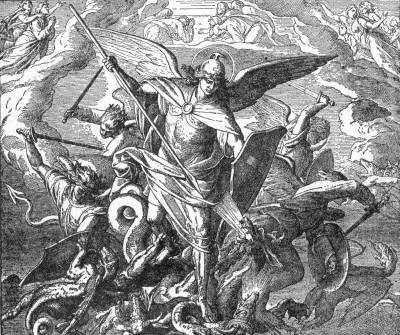 Saint Michael the Archangel
Saint Michael the Archangel A Penitent Blogger
A Penitent Blogger




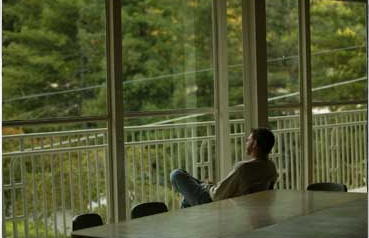







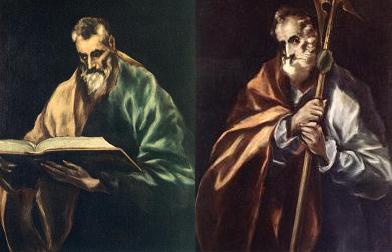
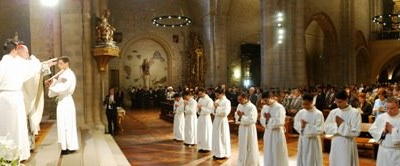

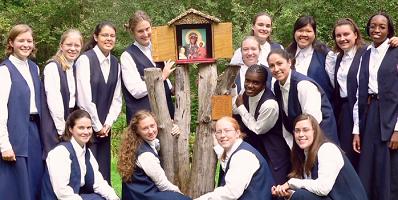


 "The sacred heart of Christ is an inexhaustible fountain and its sole desire is to pour itself out into the hearts of the humble so as to free them and prepare them to lead lives according to his good pleasure.
"The sacred heart of Christ is an inexhaustible fountain and its sole desire is to pour itself out into the hearts of the humble so as to free them and prepare them to lead lives according to his good pleasure.